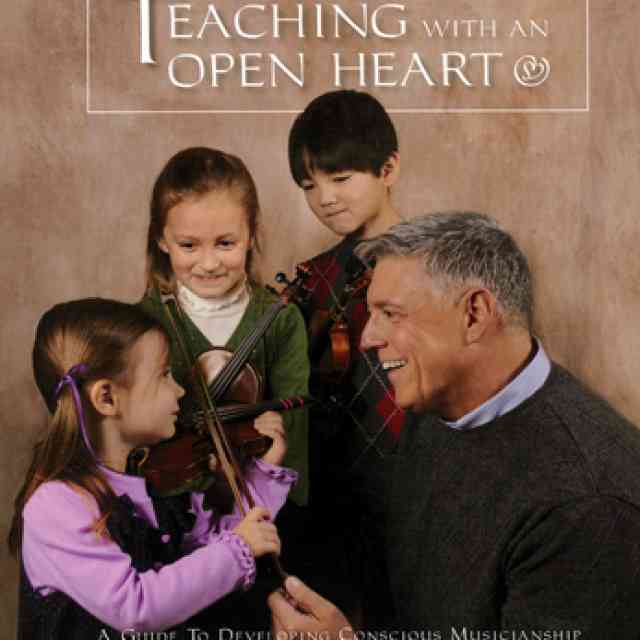Fall down seven times, stand up eight.
– Japanese Proverb
“Why is studying the cello something your family feels is important for your child?” “What are you hoping your child takes away from their musical education?” These are questions pulled directly from the survey I give to all adult caregivers in my private studio community at the beginning of each school year. Answers range from the predictable, “I want my child to develop a love and appreciation of music,” to the less predictable, “My child needs help with executive functioning and I was told by his therapist that music lessons would help.” There are those hoping their child’s course of musical study will develop a multitude of soft skills, such as focus, discipline, time management, and perseverance. There are even a few who are in it for high-level competition, acclaim, and accolades. Several survey takers have mentioned wanting their child to experience “success.” Not a single person mentioned hoping their child would learn how to fail.
During the day (and some nights and most weekends), I am the Program Manager of PMAY Artists’ Initiative, a Philadelphia-based musical pathways program. Our program supports underrepresented young artists, largely BIPOC students, as they work to become professional classical musicians. PMAY Artists receive financial support, performance opportunities, a valuable network of connections in the field, and a whole lot of guidance and mentorship. We strive to prepare our students, ranging from fifth to twelfth grade, to successfully compete for admission into the top music colleges and conservatories in the country. PMAY alumni have been accepted into schools such as Curtis, Juilliard, New England Conservatory, The Colburn School, Cleveland Institute of Music, Eastman, Oberlin, and more.
Our curriculum is intentionally rigorous and demanding, especially for high school juniors and seniors. From organizing trial lessons with potential college professors, to strategic summer program applications, to audition repertoire selection, to mock auditions, to recording pre-screenings, to audition season itself. The path to becoming a professional musician, as we all know, is grueling at a level similar to becoming an Olympian or a professional athlete. There are no shortcuts. The demand on a highly competitive young musician is taxing physically, mentally, and emotionally. Adding into that equation the weight of being minoritized in a space, handling a constant barrage of microaggressions, and the development of positive self-identity in a field with few role models who look like you—it’s a lot for a high school student to take on.
Last fall, one of our seniors walked on stage for the first in a series of mock auditions in advance of college auditions. In the hall sat a panel of adjudicators: PMAY faculty, Philadelphia Orchestra members, administrators, and other seniors in the program. The student selected to begin with her concerto. It did not go well. After a number of devastating memory slips, she was stopped by the panel. The rest of the audition went downhill from there. Solo Bach, etudes, 21st century piece. We watched as the student retreated, her sound shrinking, her bow starting to shake.
The student kept her composure as the panel dealt her some very severe feedback. She didn’t lose it even when they told her she wouldn’t be successful at any of the top college and conservatory programs on her list. It was only after she left the stage that I saw her crumble, dissolve in a heap. Big tears. Witnessing this tender moment, I realized the disservice we had done, the glaring hole in our well-intentioned curriculum. Her comments, in between sobs, were all centered around her worthlessness, her lack of talent, how she would never be a violinist, how she should quit violin and do something else. Listening to her, in her emotionally charged state, I realized two huge things:
- She was not able to separate herself—her identity and worth as a human—from her violin playing. In her mind the two were intertwined. She had not heard their criticisms of her playing, her preparedness, her technical ability. She had heard them cutting her down as a person.
- In our intense focus on preparing our students to succeed, we had completely forgotten to teach our students how to fail. Teaching emotional resilience had been overlooked in our program’s aims.
Teaching students how to fail is something I’ve only recently started to purposefully incorporate into my work, both in my administrative role at PMAY and in my teaching. I need my students to be okay after a set back, to receive negative feedback and use it to improve, to pick themselves up after a failure, to keep working and pushing forward even when it’s hard. But how does one approach this? What exactly can I do, from a pedagogical perspective, to build emotional resilience in my students? Here are some strategies I’ve been trying with some success, in an effort to cultivate emotional strength in my students.
Deliver Sincere and Truthful Feedback
We do our students a huge disservice by not giving them a truthful view of their musical shortcomings. Telling a student how great they sound when not entirely accurate makes the fall that much longer when they receive that comment elsewhere. Honest criticism, delivered in a non-judgmental way, teaches a student that learning to play an instrument, at every level, is a process, not something to be mastered. Avoid superlatives at all costs. Praise something specific if trying to lift up a student, such as “Pinky stayed on the bow the whole phrase that time,” instead of “That was amazing!”
A Slight Change in Language
After this mock audition moment in the early fall, I recorded myself teaching my private lessons the following week. I was on the hunt for clues as to how I could tweak my teaching practice to incorporate the development of resilience in my students. I often heard myself delivering feedback with “you” statements. “You’re not vibrating at the right speed for this character or dynamic.” “You need to time your shifts more deliberately.” “You’re not focused on your contact point.” “Your third finger is not on the tip.”
In listening to myself say these things, I imagined the students feeling judged, not just the playing but their entire selves. In my critiques, I failed to separate the individual from the playing. Since this realization, I have made a very small but impactful shift in my language. I have removed the “you” in my feedback. “You need to time your shifts more deliberately” has now become “The shifts need to be timed more deliberately.” “You’re not focused on the contact point” has been changed to “The contact point needs more deliberate focus.” “Your third finger is not on the tip” is now “Third finger needs to be more on its tip.”
I want to intentionally train even my youngest students to separate their identity from their ability on the cello. This will hopefully allow them to receive corrective criticism without having it impact their self-worth.
Downplay the Performance. Elevate the Preparation.
The audition, the competition, the recital, the jury: these are not the goals. The active process of improving is the goal. Make the technical and musical growth the goal instead of focusing on the performance itself. Instead of “We are going to prepare this piece for the spring recital,” try “Preparing this piece to a high level will improve your dynamic range and ability to manipulate sound color. You will get to show off your hard work in the recital.” This allows the student to see that the process of working hard and improving is something to be celebrated, something that they can successfully accomplish. Pinning all the success to a performance, one moment in a million moments, has the potential to be emotionally damaging if it doesn’t go as planned.
Change the Size of the Pond. Change the Size of the Fish.
Everybody needs the experience of being the most advanced player in the room. Through this, students learn leadership. They feel confident and empowered. Conversely, everyone needs to experience being the least advanced player in the room. Students need to experience the next level of proficiency or artistry, the one to aim for, the one to which they are aspiring. Through this, students are motivated and inspired. As teachers, we need to be aware of this balance. Our students need to sit in the first chair just as much as they need to be the last chair. They need “at bats” as both the smallest fish in the pond and the largest fish in the pond, and every sized fish in between. We need to cultivate musical experiences for them that facilitate the development of emotional resilience and the confidence to thrive in any role within a musical landscape.
Model Emotional Resilience
“I didn’t get into Juilliard. There. I said it. It was really hard at the time, but I’m ok. I have a successful career as a musician. I did not allow that small failure, which felt huge in the moment, to determine my future.” Sharing your own personal stories of defeat in a genuine way shows students that there is life beyond failure. We use our failures to inform our next steps. This aspect of teaching requires us, as teachers, to be vulnerable and share our defeats as well as our victories.
Teach Self-Advocacy
Students need to be taught to self-advocate. They need to ask clarifying questions when receiving criticism, a difficult thing in a moment when they could be feeling disparaged. They need to speak up when feeling judged. I have become purposeful in telling my students to speak up when feeling denigrated. I recently had a student tell me that she felt bad because I made a face while she was playing through “Humoresque” in her cello lesson. Simultaneously, I felt both terrible and so immensely proud. The fact that she, as an eight-year-old, felt confident enough in herself to tell me that was a huge win. Using her feedback to improve, I am now much more careful of my facial expressions when students play out of tune!
I am not a mental health professional or a social worker or doctor of any kind. The tools I’m offering here are based on my own research, the training I’ve received in trauma-informed music teaching, and a whole lot of trial and error. I’m hoping to lift up the importance of cultivating a respect for mental health and wellness in our students. I want to teach students to be comfortable in themselves both with and without their instruments. I’m advocating for the purposeful teaching of emotional resilience as one of the essential skills that goes hand in hand with our incredibly intentional Suzuki pedagogy. I want to coach young musicians to fall with grace and dignity, rise from the ashes, stronger and with even more resolve, brush themselves off, and once again, attempt to fly.









